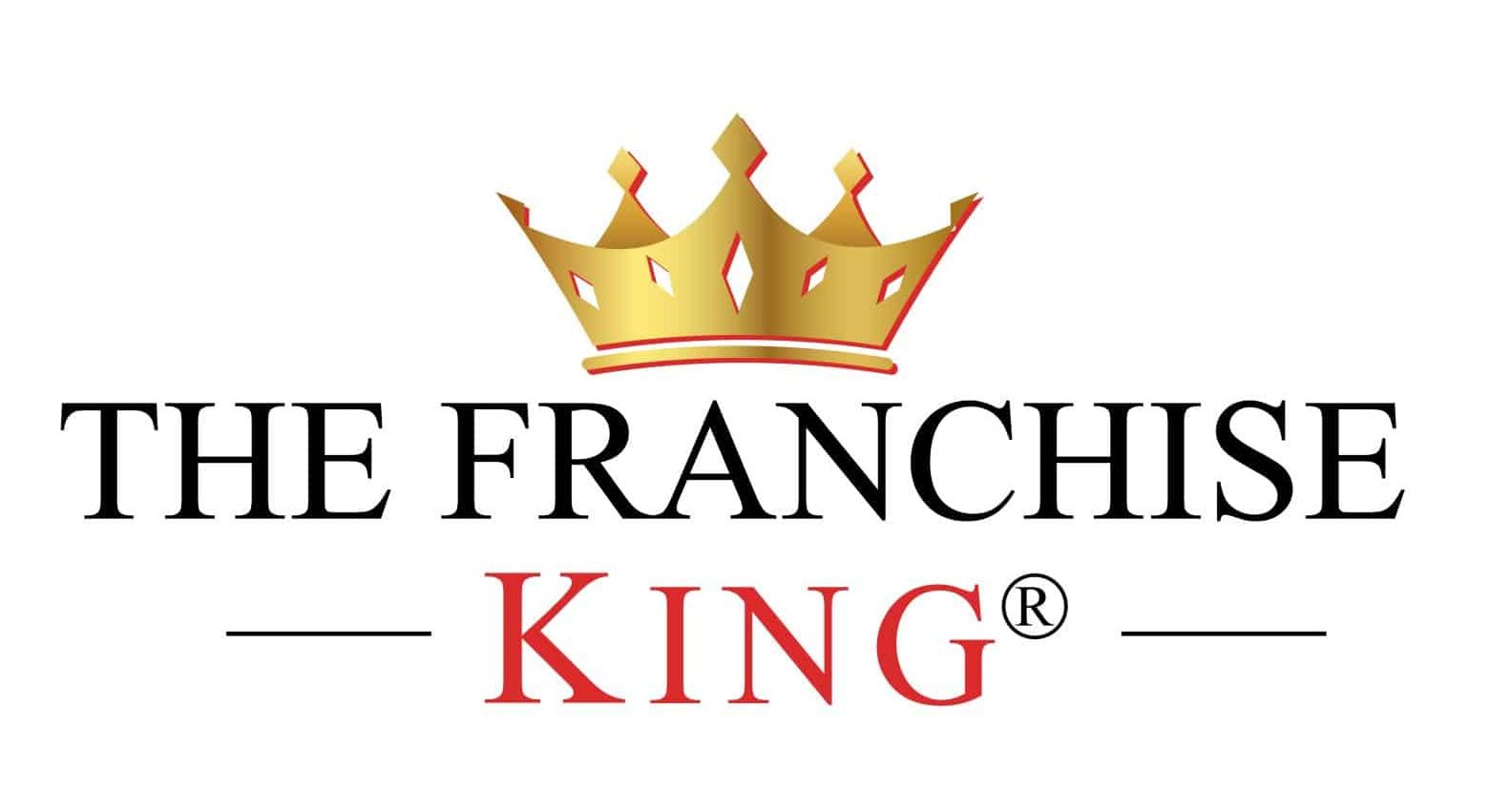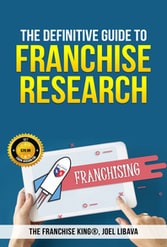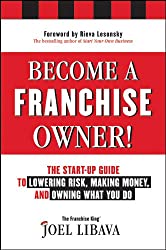
One of the most compelling reasons to consider the franchise business system as a business model is its structure, aligning closely with the principles outlined in The E-Myth Revisited, one of my favorite business classics that emphasizes creating systems over working tirelessly within the business.
In franchising, the theory is that you aren’t alone in your endeavor – instead, you are backed by a tried-and-true system, established branding, and robust training.
Furthermore, the franchising industry itself proudly touts the motto: “In business for yourself, but not by yourself.” And this sounds like an ideal scenario for entrepreneurs eager to manage their own business but with support.
That said, the question remains: does franchising genuinely live up to this promise? Let’s find out.
The Ideal Franchise Business System
The ideal franchise opportunity should, in theory, provide the framework to launch and grow a business while leveraging the established systems of a larger entity.
Specifically, you benefit from a playbook of proven processes, brand recognition, and a built-in support network.
With these resources, franchisees can focus on managing and growing the business rather than starting from scratch.
To clarify, this support system echoes The E-Myth’s guidance on building a business with a repeatable structure – franchising provides just that, allowing you to avoid some of the most common pitfalls of business ownership.
In practice, this means franchisees have access to:
- Established Training Programs: You aren’t left to figure it all out alone. From operational protocols to customer service expectations, training programs set you up to deliver a consistent experience.
- Marketing & Brand Recognition: Franchisees benefit from marketing power and brand recognition, which often takes independent businesses years to build.
- Continued Guidance and Networking: In the best franchises, support doesn’t stop after launch. Ongoing assistance from the franchisor and networking with other franchisees can help address challenges that arise as the business grows.
A Franchising System Reality Check
During the recent Forum on Franchising, which I attended (one of the premier events where the best franchise lawyers in the country gather), a survey presentation shed light on some real franchisee experiences with their franchisors.
And while the sample size was small, the survey presented by at the Franchising Forum revealed key insights into franchisee satisfaction with franchisor support:
- 1 in 10 (9.6%) agreed they were satisfied.
- 2 in 10 (16.5%) remained neutral.
- 7 in 10 (73.9%) disagreed.
These findings indicate a notable level of dissatisfaction among franchisees regarding the level of support they receive from franchisors.
Clearly, this underscores the importance of thoroughly researching potential franchise opportunities to understand the realities behind each brand’s promise of support.
My Tips for Conducting Due Diligence in the Franchise Process
For those considering franchising, due diligence is essential.
The fact is, not every franchise system offers the same level of support, and the onus is on the potential franchisee to determine whether a specific franchise meets their needs.
With that in mind, here are some key steps to help you perform due diligence effectively.
1. Contacting Current and Former Franchisees
Reaching out to franchisees – both current and former – can provide valuable, often unfiltered insights into the actual experience of running a franchise within the brand.
In this case, you need to ask open-ended questions about their satisfaction with the support they received, the training programs, the marketing, and any challenges they faced in their operations.
Speaking with former franchisees can be especially enlightening, as they can provide insights into why they left the franchise and whether their expectations matched the reality of the business.
Some good questions to ask include:
- How responsive is the franchisor to franchisee needs or issues?
- What’s the franchisor’s approach to change and innovation?
- Did your experience align with the expectations set during the franchise sale process?
Here are a dozen or so more questions to ask franchisees.
Finally, these conversations can help paint a more realistic picture of what to expect and help you gauge whether the brand’s promises match its franchisees’ experiences.
2. Reviewing the Franchise Disclosure Document (FDD) with a Lawyer
The Franchise Disclosure Document (FDD) is a comprehensive document that provides detailed information about the franchise system, the franchisor, and the terms of the franchise agreement. The FDD is lengthy, often containing lots of legalese, which can make it difficult to understand without a lawyer’s guidance.
Having a knowledgeable franchise lawyer review the FDD with you is crucial, as they can highlight critical clauses and fees you may overlook. Some of the key sections in the FDD to focus on include:
- Item 5 – Initial Fees: Details on fees you’ll need to pay upfront to open the franchise.
- Item 6 – Other Fees: Item 6 outlines ongoing fees you’ll be required to pay beyond the initial franchise fee, such as royalties, marketing fees, and other potential costs. Understanding these fees is essential, as they directly impact your ongoing profit margins and cash flow.
- Item 7 – Estimated Initial Investment: A breakdown of the total estimated costs to get the franchise up and running. This section helps you understand the financial commitment required and enables you to compare with other franchise opportunities. Unfortunately, many franchisors get this wrong and it can often cost more to get up and running. Be sure to talk with other franchisees about what they actually spent to start up.
- Item 8 – Restrictions on Sources of Products and Services: Item 8 specifies whether you are required to purchase products or services from designated suppliers or the franchisor. These restrictions can affect operational flexibility and pricing; knowing these details is crucial for understanding potential profit margins.
- Item 12 – Territory: Item 12 defines the territory granted to the franchisee, which can include a geographic area where no other franchisees can operate. Understanding your territory rights is essential for assessing potential competition and market reach. Be sure to review whether the territory is exclusive and protected. Can the franchisor can modify it in any way? Changes can impact your customer base and growth potential.
- Item 19 – Financial Performance Representations: Projections of potential earnings, which franchisors are not legally required to provide but may offer. Reviewing Item 19 can help set realistic expectations about revenue and profitability, though these representations are never guaranteed.
A lawyer’s insights can help ensure you are fully aware of your financial commitments, your obligations under the franchise agreement, and the franchisor’s responsibilities (which contractually are often limited). With these insights, you will have a clearer picture of the risks and rewards of the investment.
The Money Part
3. Carefully Assessing Financial Requirements
While franchising provides the advantage of a proven business model, it doesn’t remove the need for a solid financial foundation. Franchise fees, royalty payments, and ongoing marketing fees are common obligations that can impact profitability. Review the estimated initial investment provided in the FDD and compare it to your available capital and financing options.
Ask yourself these questions as you assess the financial requirements:
- Do you have enough liquidity to cover initial costs and any early operating losses?
- Are you comfortable with the franchisor’s ongoing royalty or marketing fees?
- Have you factored in any additional local expenses that may not be included in the FDD and the ongoing business expenses such as payroll, insurance, technology, accounting, legal, etc.
Thoroughly understanding the financial requirements will help you determine if you have the resources to meet your obligations, especially during the startup phase, when profitability may be lower than anticipated.
A Balanced Approach to the Franchise Business System/Model
The survey and discussions from the Forum on Franchising underline a key takeaway: your success relies on the synergy between the franchisor’s system and your proactive management as a franchisee. It’s this:
A franchisor’s brand and systems provide structure, but it’s up to the franchisee to make informed decisions, manage operations effectively, and leverage available support.
Additionally, the statistics and data presented at the Forum demonstrate that while franchising offers a structure, it is not a guarantee.
That’s why a comprehensive due diligence process – contacting franchisees, carefully reviewing the FDD with legal assistance, and ensuring financial readiness – can increase your chances of aligning with a franchise that supports your goals.
In Summary
Ultimately, franchising can offer an ideal balance between independence and support – if you choose wisely and prepare thoroughly.
So, while franchising does not promise guaranteed success, it does offer a framework to build a business with guidance from experienced counterparts, echoing The E-Myth Revisited’s ideals of working on your business and not just in it.
Finally, with a diligent approach, you can better ensure that your franchise choice lives up to its promise of helping you be in business for yourself, but not by yourself.
(This post was written by Rush Nigut, an attorney and shareholder with Brick Gentry, P.C. practicing business and franchise law from our office in West Des Moines, Iowa. I offer a wide range of services including contract review and negotiation, franchise law matters, incorporation and LLC formation, and intellectual property protection.)
About the Author
The Franchise King®, Joel Libava, is a leading franchise expert, author of "Become a Franchise Owner!" and "The Definitive Guide to Franchise Research." Featured in outlets like The New York Times, CNBC, and Franchise Direct, Joel’s no-nonsense approach as a trusted Franchise Ownership Advisor helps aspiring franchisees make smart, informed decisions in their journey to franchise ownership. He owns and operates this franchise blog.
Note: When you buy through links on this website, we may earn an affiliate commission.









